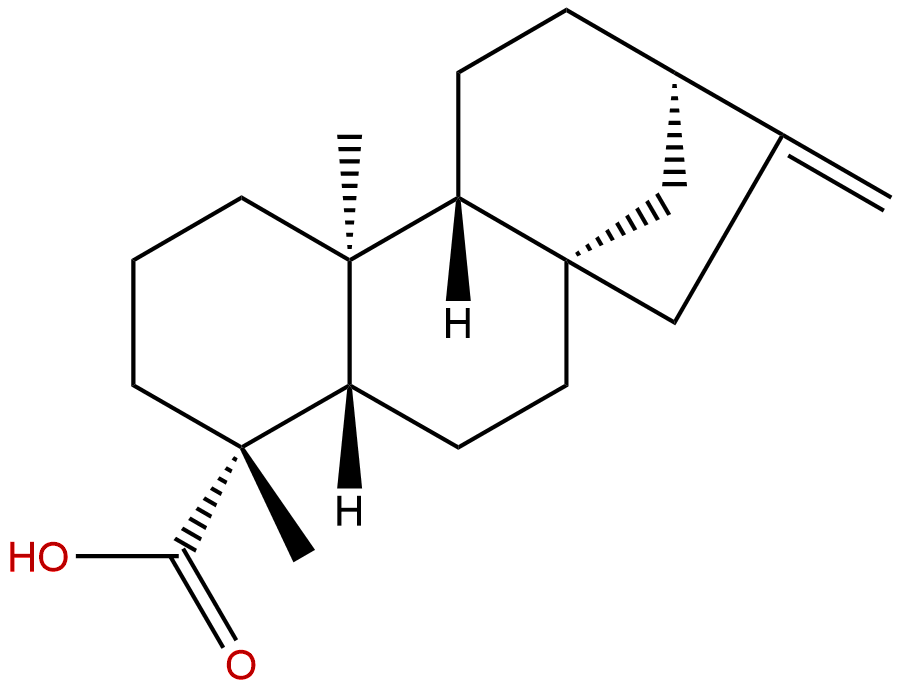Kaurenoic acid Descrtption
Product name: Kaurenoic acid
Synonym name:
Catalogue No.: BP3722
Cas No.: 6730-83-2
Formula: C20H30O2
Mol Weight: 302.458
Botanical Source:
Physical Description: Cryst.
Type of Compound: Diterpenoids
Purity: 95%~99%
Analysis Method: HPLC-DAD or/and HPLC-ELSD
Identification Method: Mass, NMR
Packing: Brown vial or HDPE plastic bottle
Storage: Store in a well closed container, protected from air and light. Put into refrigerate or freeze for long term storage.
Whenever possible, you should prepare and use solutions on the same day. However, if you need to make up stock solutions in advance, we recommend that you store the solution as aliquots in tightly sealed vials at -20℃. Generally, these will be useable for up to two weeks.
The product could be supplied from milligrams to grams, up to kilograms
Inquire for bulk scale.
Descriptions:
Kaurenoic acid, a diterpene isolated from Copaifera langsdorffii oleo-resin, has cytotoxic and embryotoxic effects.[1]
Kaurenoic acid has anti-inflammatory potential in acetic acid-induced colitis, decreases in MDA level, an indicator of lipoperoxidation in colon tissue. [2]
Kaurenoic acid exerts a uterine relaxant effect acting principally through calcium blockade and in part, by the opening of ATP-sensitive potassium channels.[3]
Kaurenoic acid exhibits an analgesic effect in a consistent manner and that its mechanisms involve the inhibition of cytokine production and activation of the NO-cyclic GMP-protein kinase G-ATP-sensitive potassium channel signaling pathway.[4]
Kaurenoic acid derivatives has antimicrobial activity of substituted on carbon-15 at concentrations greater than or equal to 250 micrograms/ml.[5]
Kaurenoic acid has inhibitory effects on LPS-induced inflammatory response in RAW264.7 macrophages.[6]
References:
[1] Costa-Lotufo L V, Cunha G M A, Farias P A M, et al. Toxicon, 2002, 40(8):1231-4.
[2] Paiva L A F, Gurgel L A, Silva R M, et al. Vascular Pharmacol, 2002, 39(6):303-7.
[3] De A C K M, Paiva L A F, Santos F A, et al. Phytother Res, 2003, 17(4):320-4.
[4] Mizokami S S, Arakawa N S, Ambrosio S R, et al. J Nat Prod, 2012, 75(5):896-904.
[5] Davino S C, Giesbrecht A M, Roque N F. Brazilian journal of medical and biological research 1989, 22(9):1127-9.
[6] Ran J C, Shin E M, Jung H A, et al. Phytomed Int J Phytother Phytopharmacol, 2011, 18(8-9):677-82.
[7] Fucina G, Block L C, Baccarin T, et al. Talanta, 2012, 101(22):530-6.


